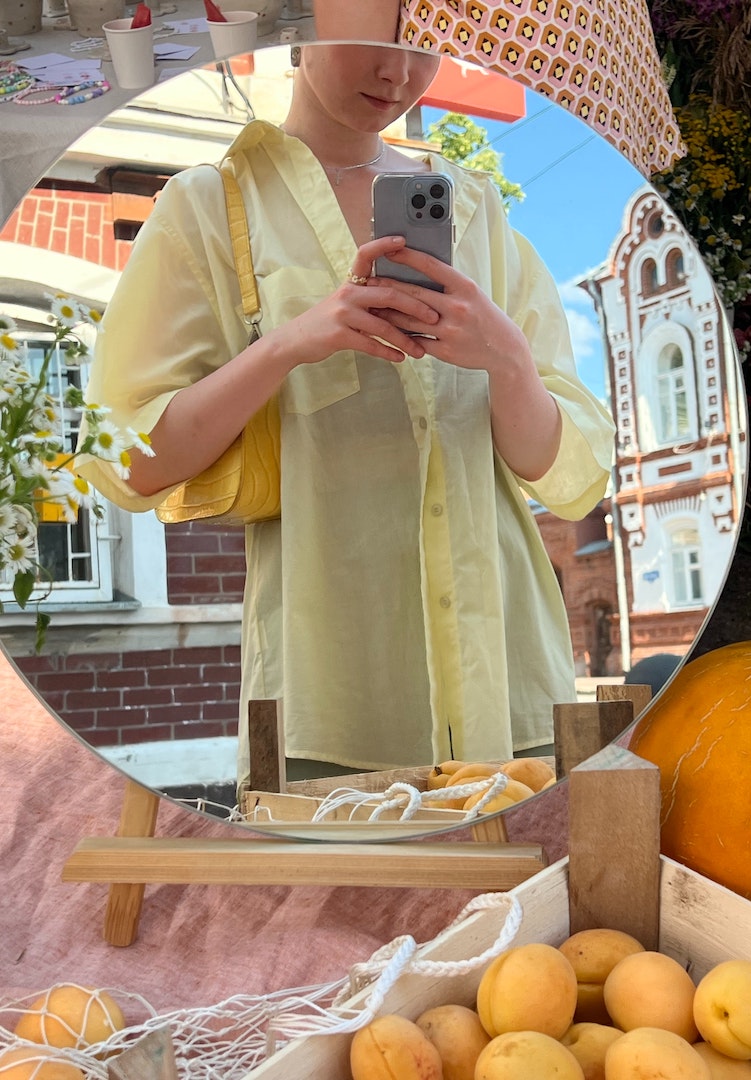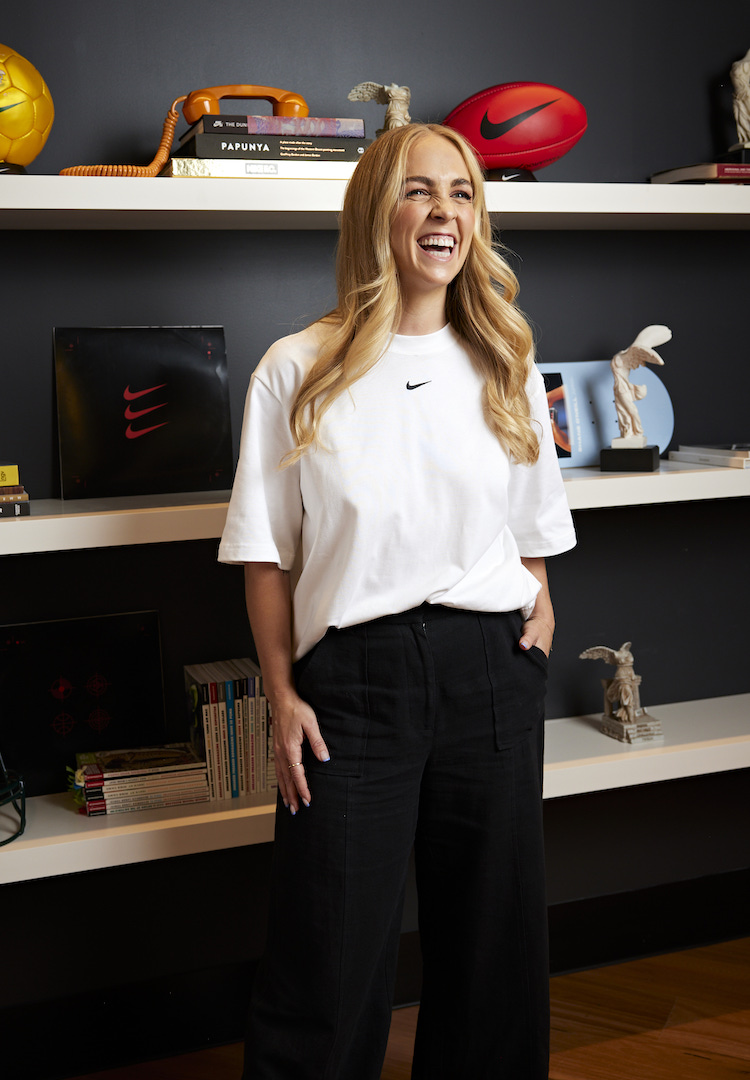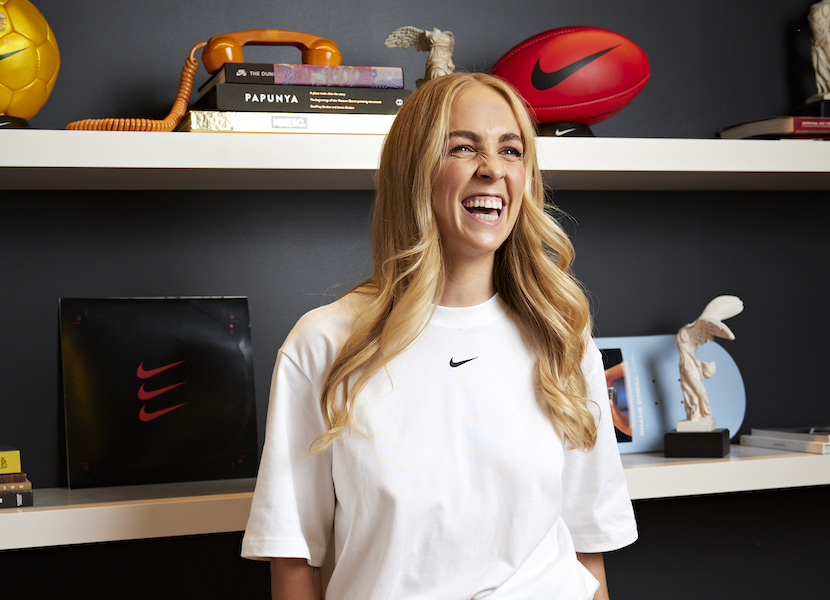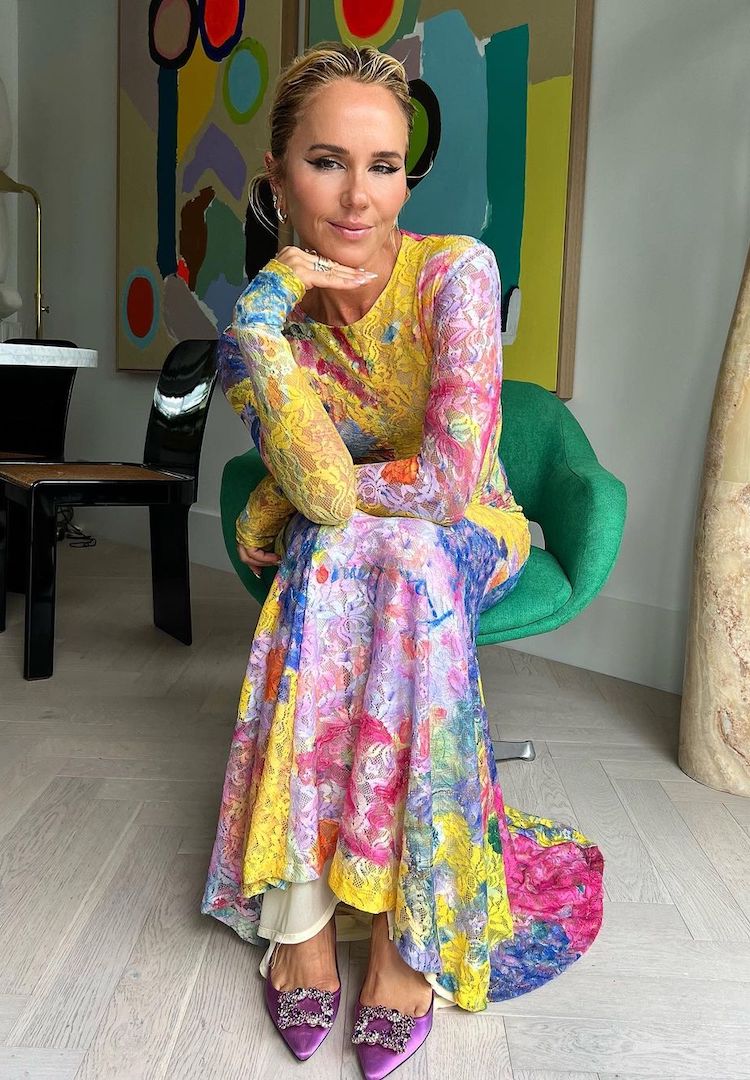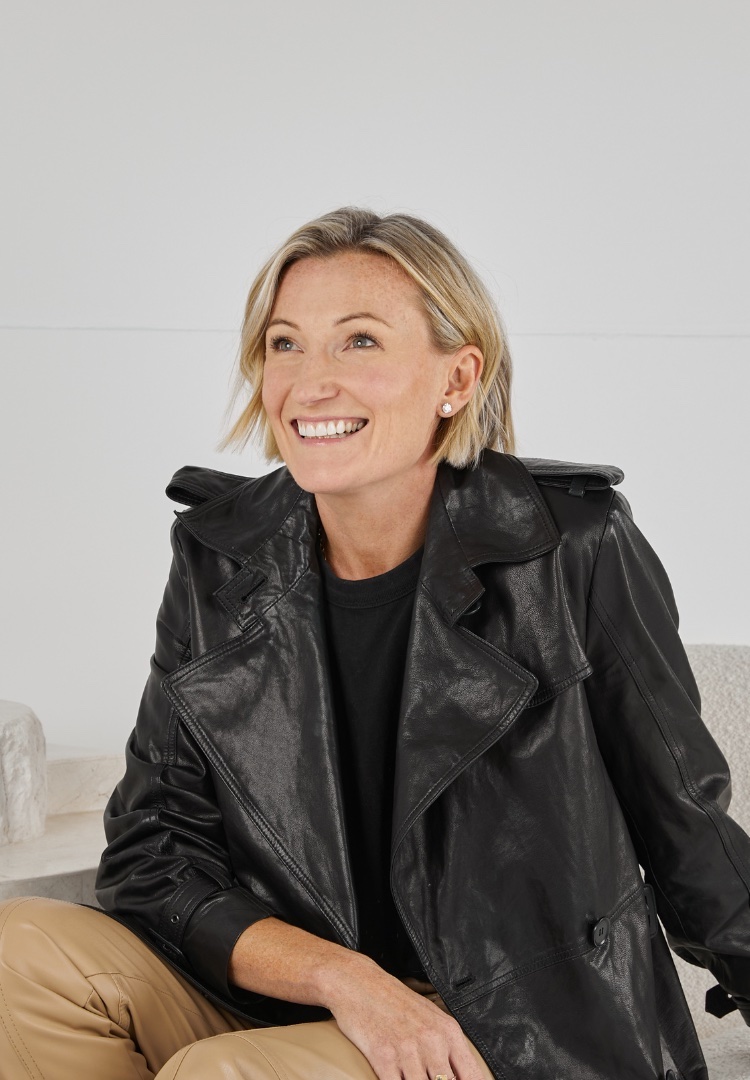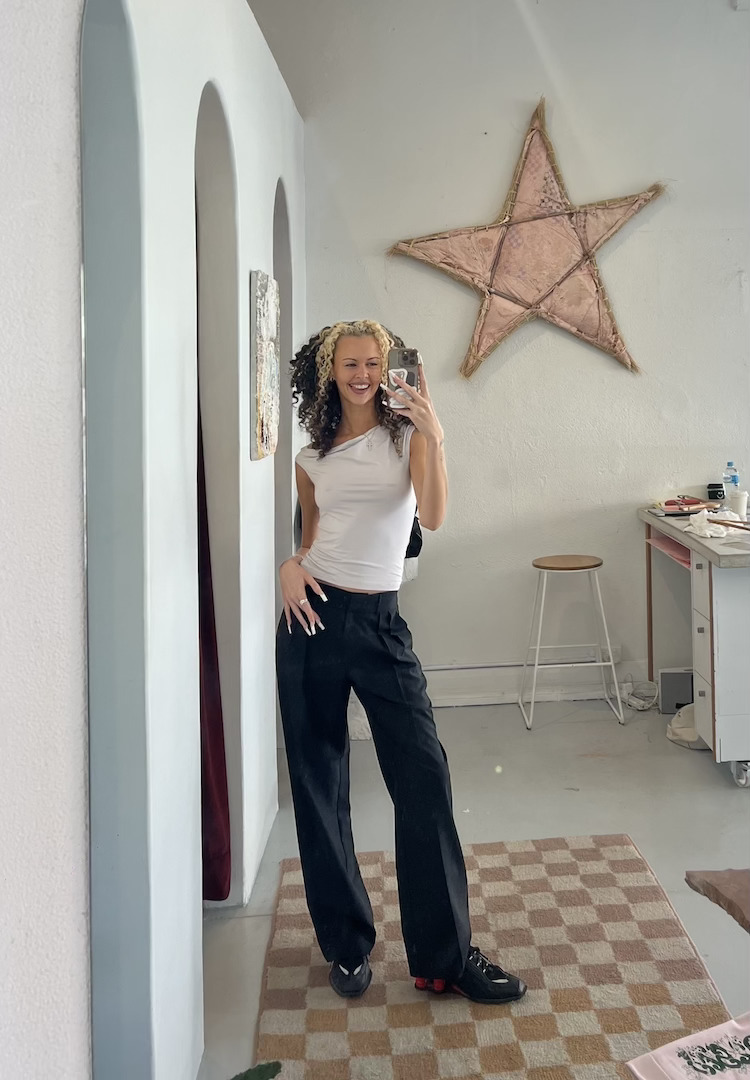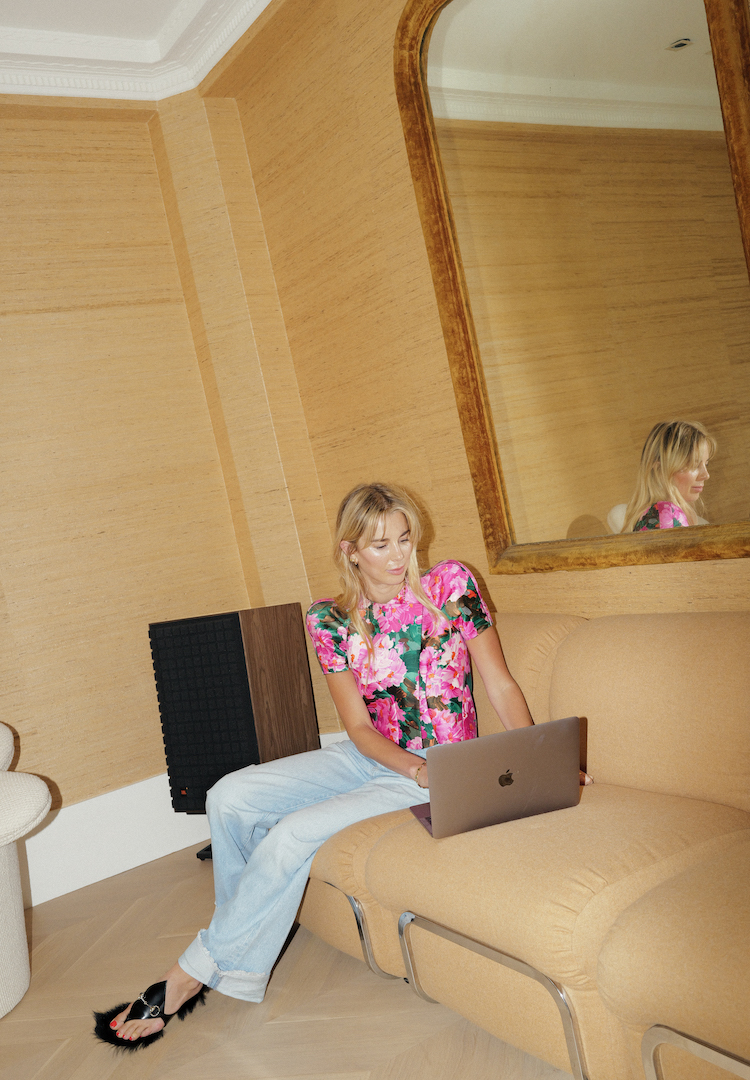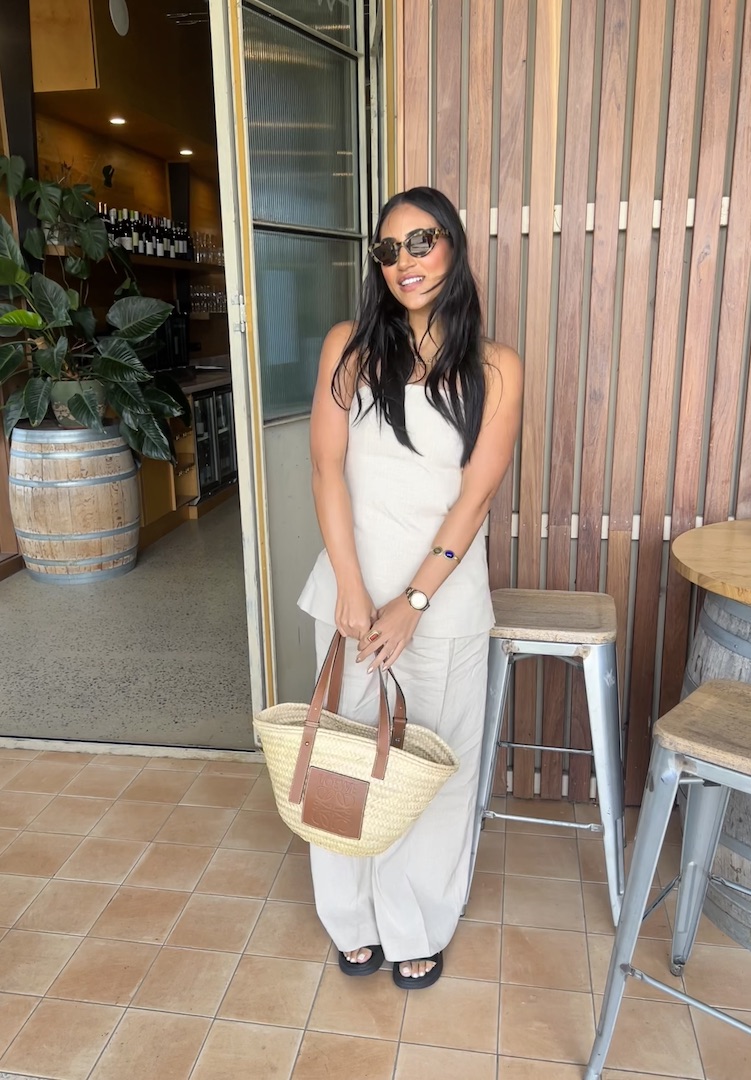How I Got Here: Nike’s Pacific Communications Lead on how purpose drives passion
WORDS BY FASHION JOURNAL
“It’s what gets me out of bed and bounding into the office in the morning.”
Have you ever stalked someone on LinkedIn and wondered how on earth they managed to land that wildly impressive job? While the internet and social media might have us believe that our ideal job is a mere pipe dream, the individuals who have these jobs were, believe it or not, in the same position once, fantasising over someone else’s seemingly unattainable job.
But behind the awe-inspiring titles and the fancy work events lies a heck of a lot of hard work. So what lessons have been learnt and what skills have proved invaluable in getting them from daydreaming about success to actually being at the top of their industry?
Looking for a new 9 to 5? Head to our Careers page for new listings daily.
Welcome to How I Got Here, where we talk to women who are killing it in their respective fields about how they landed their awe-inspiring jobs, exploring the peaks and pits, the failures and the wins, and most importantly the knowledge, advice and practical tips they’ve gleaned along the way.
They say you shouldn’t mix work and pleasure, but Abbey Wirth has created a career by going after her passions. Currently the Narrative and Communications Lead at Nike Pacific, Abbey worked at various agencies from London to Sydney prior to her time at the global brand. After working with clients from diverse industries, she found herself being drawn to one sphere in particular.
“I always found myself gravitating… and getting pulled into any work that had some connection to sport,” Abbey reflects. To say she’s involved in the sporting world is an understatement. She gets to work alongside some of the planet’s most talented athletes – like our Matildas at the Women’s World Cup – while juggling her very expansive and varied communications role. Here, she takes us through her career journey as well and leaves us with some very practical advice.
What do you do and what’s your official job title?
My official title at Nike Pacific is Narrative and Communications Lead, where my focus is to curate Nike’s narrative for Australia and Aotearoa New Zealand (Pacific). I lead a team and the business to drive a consistent (yet localised) corporate and consumer narrative through storytelling, employee and executive communications, corporate reputation, issues management and purpose communications.
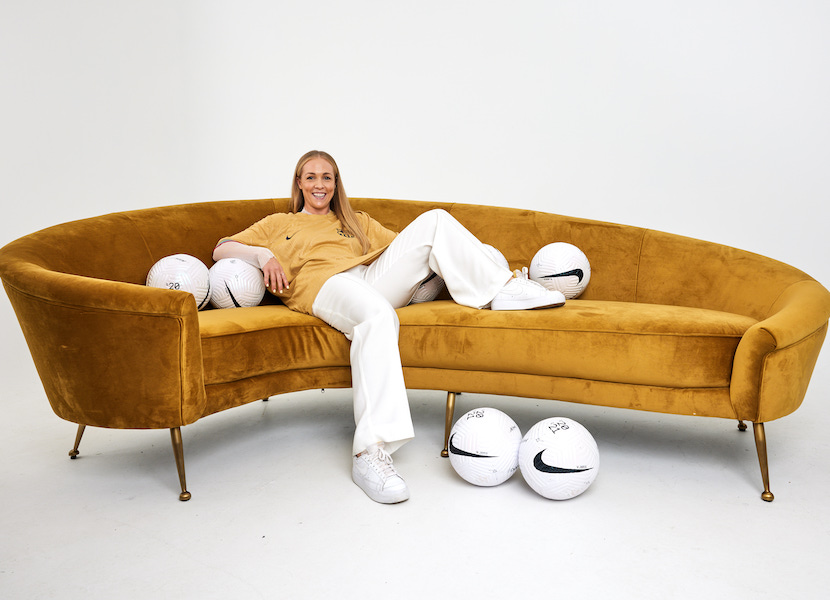
Take us back to when you were first starting out. Did you study to get into your chosen field, or did you start out with an internship/entry-level role and climb the ladder? Tell us the story.
I would say a bit of both. After high school, I went straight into a Bachelor of Media and Communications, majoring in journalism at the University of Technology in Sydney. I dabbled in a double degree with law, but eventually decided it wasn’t for me. It may or may not have been trying to tackle constitutional, contracts and tort law in the same semester that turned me off.
I had always wanted to be a journalist. Back then, I was either going to be a fashion journalist or a sports journalist, [they were] two of my biggest passions. So, I interned heavily during university breaks. This took me everywhere from Dolly Magazine to slogging it in the old Grazia fashion cupboard, 2GB, Channel 9 and 7 newsrooms, Sunrise [and] The Morning Show production and more.
I then ‘fell’ into PR [and] communications. After working at a local bakery for six years part-time through school and uni, I wanted an office job. A uni friend of mine helped get me a job [as a] reception/showroom assistant at a PR agency. I absolutely fell in love with this side of comms.
From there, it was a bit of climbing the ladder and making strategic career moves for opportunities to either step up or focus more on my passions. I moved to a few awesome public relations agencies, in both Sydney and London, expanding my remit from solely fashion into more lifestyle, retail, sport, FMCG and corporate [areas]. At one of those agencies, two of my clients were Nike and Red Bull. I think this is when I decided I needed to get into sport full-time. I always found myself gravitating to these clients and getting pulled into any work that had some connection to sport.
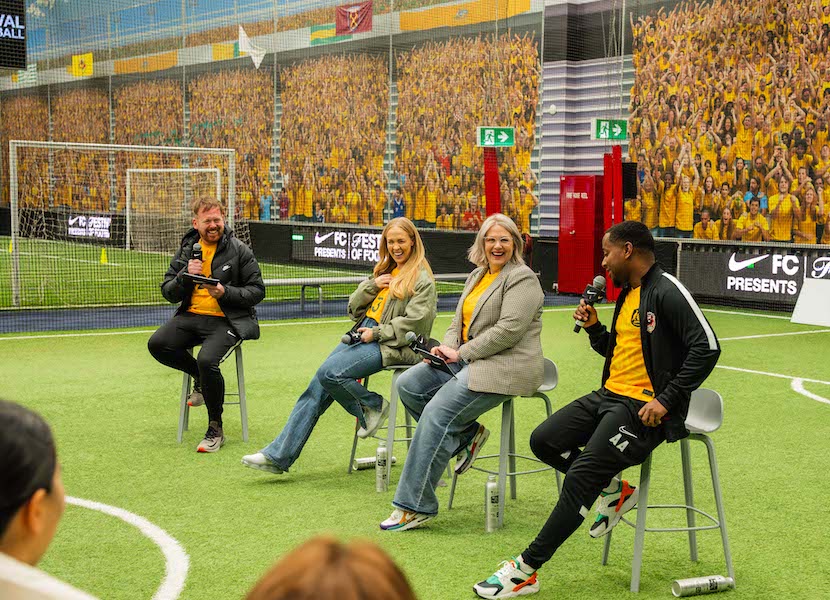
Great clients can lead to great opportunities, and this did lead to a great gig as Communications Manager at Red Bull where I was able to better understand in-house communication roles [through] working directly with athletes, corporate matrixes, business strategies and other corporate know-how.
But when my dream role came up at Nike, I jumped at it. They had been on my ‘to work for’ dream list since I started my career (yes, I had a list… call it manifesting maybe?). The last two and a half years [have] been an incredible learning curve, and so rewarding both personally and professionally.
What challenges/hurdles have you faced getting to where you are now? Can you tell us about one in particular?
I think everyone’s career has ups and downs, or moments where you think you’re just not going to cut through. But I think the biggest challenge (or I would now say learning) is an unsupportive work environment. This came in the shape of micromanagement, subtle or overt gender bias, a breakdown of trust, unhealthy levels of office gossip or unrealistic expectations on workload taking a toll on my personal life or mental health.
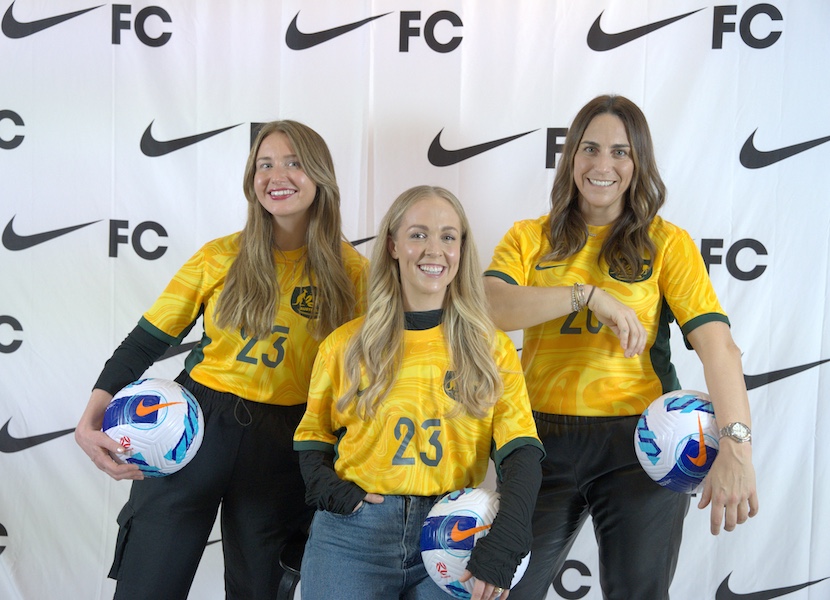
I try to find a silver lining in it because I think I have a clear radar for it now and have confidence in my ability to either remove myself or address the situation. I am also now in a leadership role where I can really help shape that culture and environment through how I lead and how we support our teams.
My advice to anyone facing this type of challenge is to:
- Reach out to a mentor for advice, I had a great one who helped me work through situation mapping, get perspective and create a bit of an action plan that gave me some power back.
- Know the right ways to report or escalate if needed. I didn’t always know this and it would’ve helped nip some situations in the bud or given other leaders in the business more visibility.
- Make sport a daily habit; move your body, calm your mind. The power of movement (even just a walk around the block) to create clarity, destress and work through problems is priceless. After deprioritising it at times, it’s now something that is a non-negotiable for me every day.
What do you want people to know about your industry/your role?
Communications has a seat at the executive table. And not just as a support function, but as a genuine partner in building, shaping and deciding on business strategy. Sometimes the view may be that communications or public relations [are] a ‘less serious’ part of the business organisation.
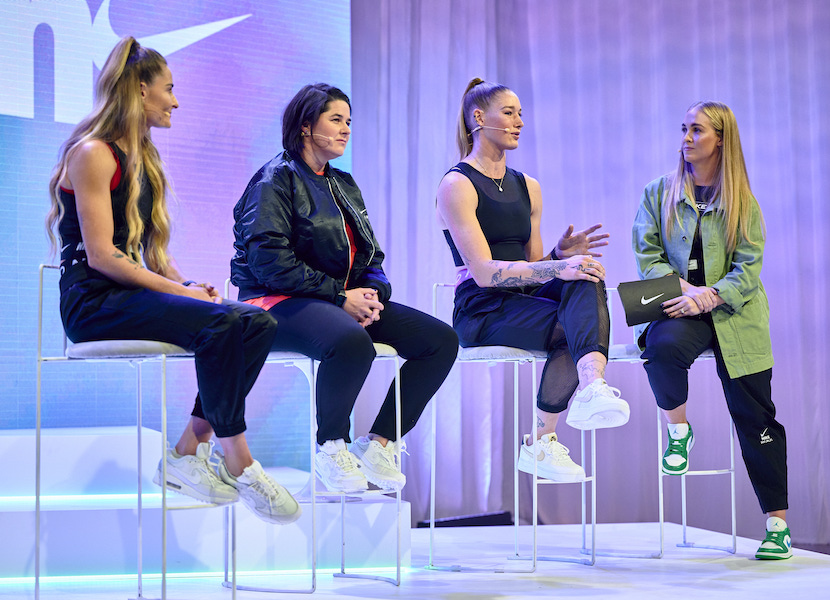
The pandemic and other major global events or social movements of late have shown that communications play a critical role in making sure that a brand is accountable to its word and values as well as maintaining clear lines of information, having a considered approach to how that information is presented and ultimately, using all of this to shape business strategy and decision making. It’s an exciting time to be in comms!
What’s the best part about your role?
Creating change through sport. Without a doubt. Nike is the biggest champion for athletes and sport and through my role, I can drive or support our purpose-led work – in particular driving and championing equity in sport. Driven by purpose, we are empowered to address inequities head-on and break down barriers for the betterment of the game.
With momentum in women’s sport in the Pacific, we’ve been able to use this historic moment on home soil as a lightning rod for lasting change in sport more broadly… I am so proud of this work and it’s what gets me out of bed and bounding into the office in the morning.
What would surprise people about your role?
I think the variation day-to-day would surprise people. I often joke that I’m a bit of a ‘Jack of all trades’ and communications can often be that. While always laddered up to a strategy, a week in my life is almost never the same as the last. It can include anything from workshopping strategy with my teammates around Asia and the US, hosting a photoshoot with athletes and our media partners [or] presenting at major employee events.
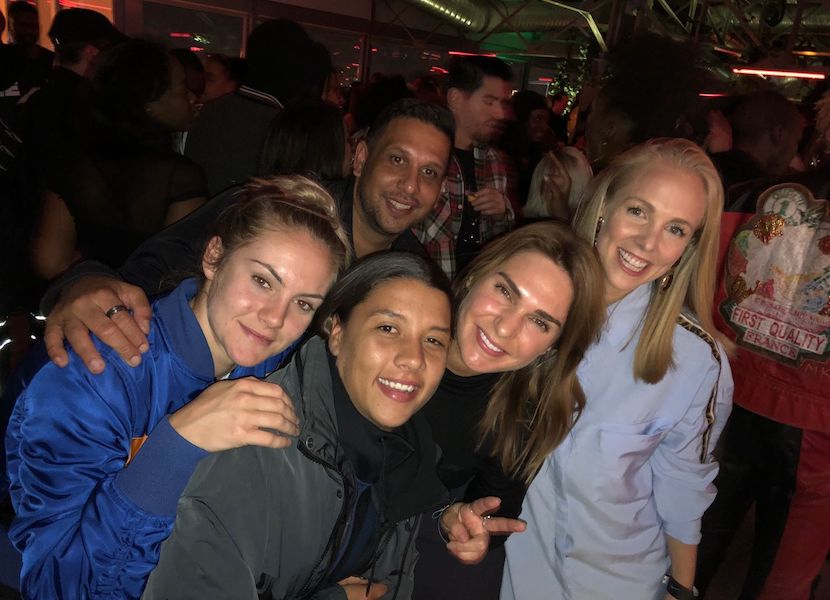
[I could be] getting out to see our social community impact partners, attending sporting events, managing corporate issues with senior stakeholders, meeting with experts on sports research, hosting a mega impressive launch event, building relationships with media or influential people, or providing advice to the other leaders of the business. Every day is new, I love it!
What skills have served you well in your industry?
Beyond a real passion for comms, there are a few skills that helped to propel me through my career. First, having a strategic mindset. I actually considered going to go into strategy as I have a real love for analytical, deep strategic thinking. I ask a lot of questions and absorb a lot of information to make strategic decisions faster.
For me personally, resourcefulness and tenacity go hand in hand. This job can be tough, we often have a lot to balance, and it takes a salesperson-style tenacity to get things over the line sometimes! In comms, you often have difficult conversations and make recommendations that are challenging, I’ve now built the confidence [and courage] to step up and make bold decisions.
At Nike, we all bring different skills to the table and inspire each other to do our best work. I work great independently, but it’s not about me, it’s about the team, the athlete [and] the purpose. However, I don’t think this stops me from seeing the bigger picture. There [are] always a lot of moving parts, but the detail of [every] one per cent can make an impact on a message.
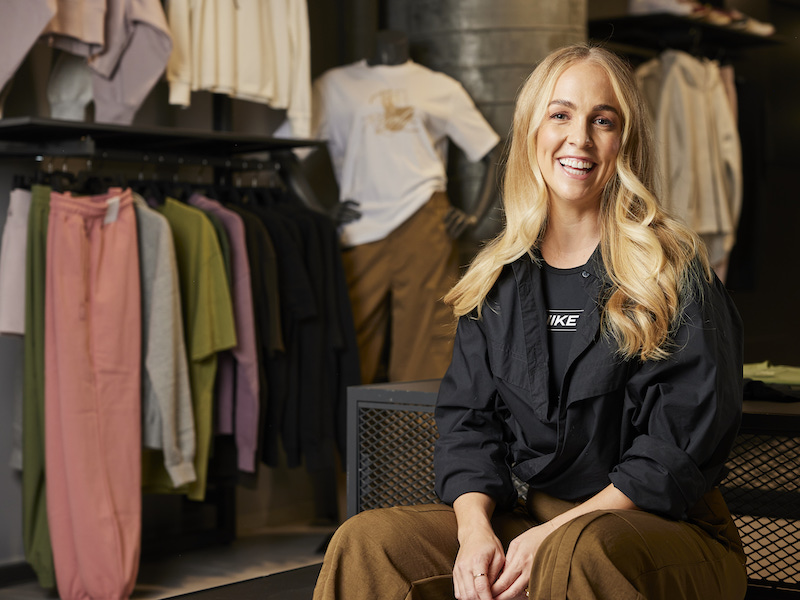
What advice would you give to someone who wants to be in a role like yours one day?
Think three [or more] career moves ahead. Don’t just think of this move or role now, think about what you want in the future and how a new role or experience in an organisation might get you there. Moves won’t always be vertical, they may be horizontal, but if they’re strategic they’ll still get you closer to the end goal.
Always be open to learning and find ways to take control of your own growth – listen to podcasts, follow great leaders on social, read comms from execs or senior leaders and take notes, absorb new media formats, sign up [for] a short course, watch someone you admire in action, read something new, get out and try new experiences.
Imposter syndrome is real, it’s okay to feel it, but use it to your advantage and don’t let it stop you from being the youngest person, the only female or only ‘you’ in a room. Use it to drive you to listen more, learn more, and get even better one day at a time.
What about a practical tip?
Apply for that job – the one you want and think you might not be 100 per cent prepared for. Write a good cover letter and make your CV stand out. If you work in comms, the person on the other end likely does too. [Your CV is] a reflection of your personality, professionalism and passion. I think the VP/GM of Nike Pacific still has mine printed on his desk.
Truly listen to your audience. Define who they are and build plans that serve them where they are and how they want information. If you are doing the same comms plan you were three years ago, you’re not listening. Remember to have fun. We used to say in agency, it’s PR not ER, that phrase always gives me perspective.
Read the rest of the How I Got Here series here.
Looking to step up to a career in communications? Each week we send a wrap of industry jobs straight to your inbox. Enter your details below and we’ll keep you in the loop, or browse current openings here.

